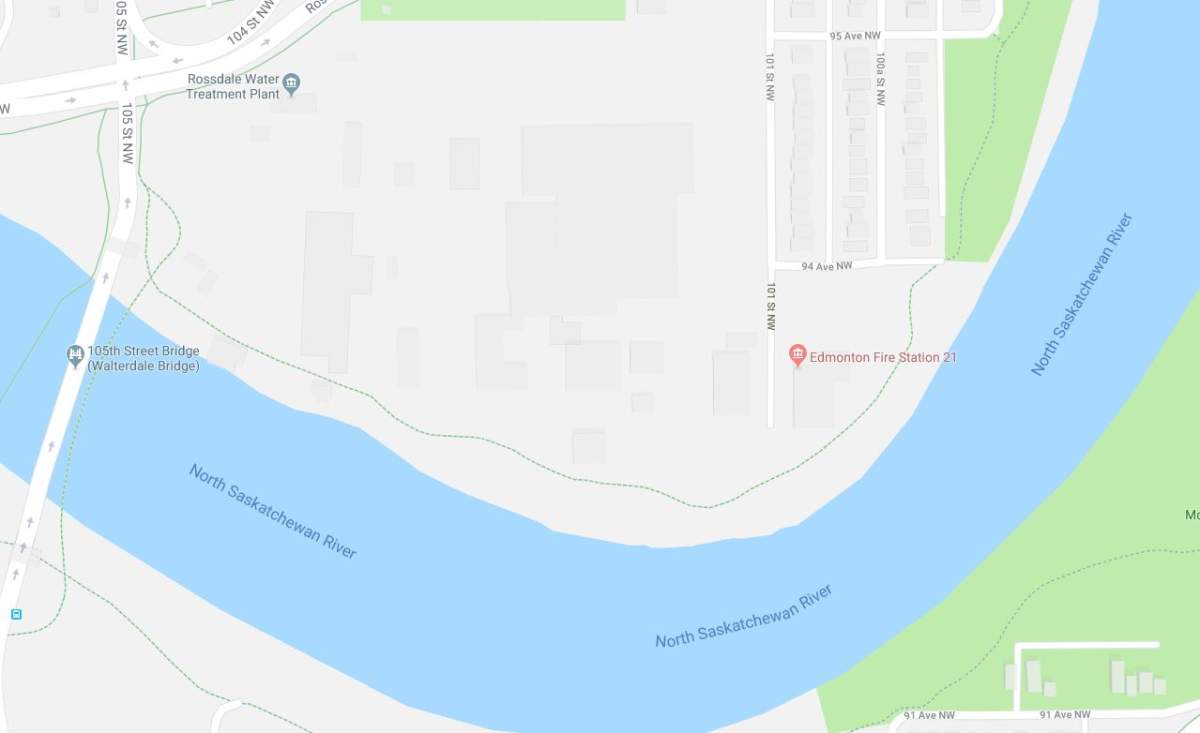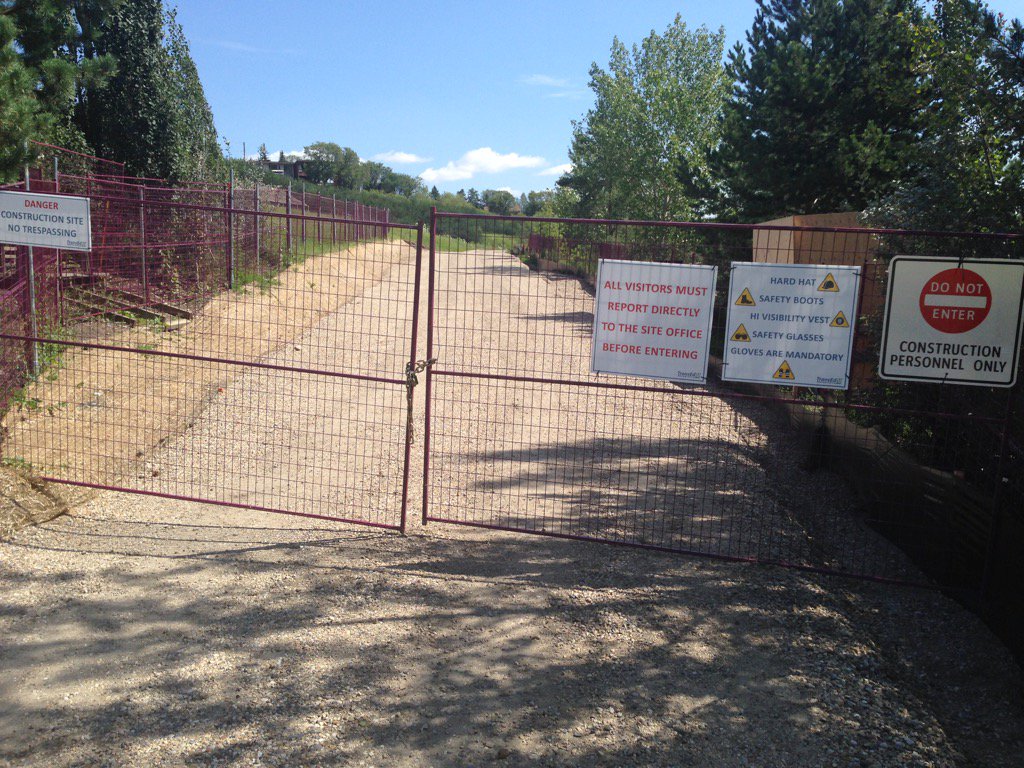A popular stretch of trail in Edmonton’s North Saskatchewan River Valley is once again open, after it was closed in 2013 because of Walterdale Bridge construction and remained blocked off due to poor path conditions.

The stretch of trail from Walterdale Bridge to 94 Avenue was originally closed to make way for construction of the new bridge and in the years since, the asphalt surface has deteriorated.
“I recognize it’s been a long wait. We hope the wait was worth it,” project manager Ryan Teplitsky said.
“When you do come down here, though, it is quite overwhelming — the size of the bridge, the fact it’s a landmark in the downtown.
“You see this bridge with the trails, the trees, with the skyline of the city.”
On Tuesday, the city announced trails on both sides of the new bridge were open to the public.
“One of the main differences is that on the north side of the bridge, you can actually go underneath it now,” Teplitsky said. “The old Walterdale Bridge, there was no connection east-west on the north side.

Get breaking National news
“There’s a whole large promenade retaining wall, a large promenade there for people to basically hang out, sit around. There’s also a shared-used path that cyclists can come around. We have stair access, large trail network access… It’s just much more inviting… and fantastic views all around.”
The trail on the north bank of the river curves from the Rossdale neighbourhood, behind the old EPCOR power plant and connects to the new bridge.
Earlier this year, Mayor Don Iveson said he had received lots of feedback from runners’ groups and other citizens who wanted to see the trail open.
A city report on the status of Edmonton’s river valley trail closures and cautions released in March said aside from the Rossdale trail, five other trails that are currently temporarily closed are in various stages of rehabilitation or being redesigned.
The report also found three trails (parts of Keillor Road, Whitemud Ravine South and Forest Heights Park) are likely to remain closed permanently because of washout conditions or because they are simply beyond repair.
There are more than 160 kilometres of improved trails — which have surface treatment such as concrete or asphalt — in Edmonton.
Two years ago, a different report on the state of the city’s trails said roughly one-third of those in Edmonton’s river valley system were graded as fair or poor.
READ MORE: Sierra Club questions lack of accessibility in Edmonton’s river valley plan
That report found that while 58 per cent of improved trails were either very good or good, 23 per cent were ranked as fair, eight per cent were ranked poor or very poor while 11 per cent were unknown.
The assessment of poor or very poor meant there was distress on the trail, potholes, major cracking or displacement while fair meant there was minor surface unevenness or displacement.
READ MORE: Councillors discuss River Walk Promenade options for Edmonton river valley
The 2016 report found the trail network had experienced erosion, instability and exposure to storms and flooding. At the same time, the city had experienced a growth in population and in the popularity of outdoor recreational activities as well as in the use of alternative modes of transportation.
— With files from Julia Wong, Phil Heidenreich and Emily Mertz, Global News










Comments
Want to discuss? Please read our Commenting Policy first.